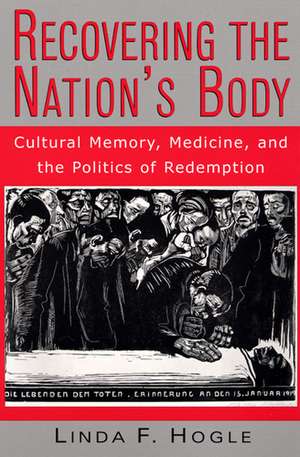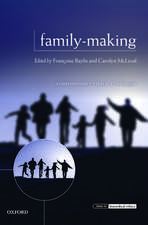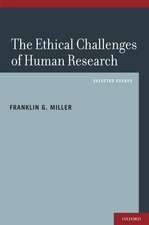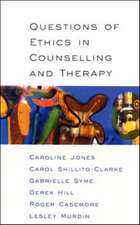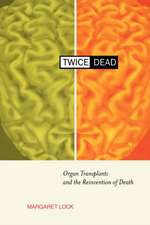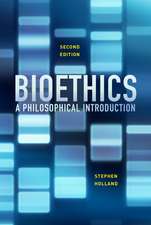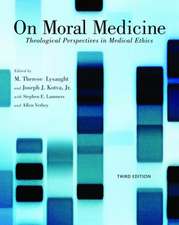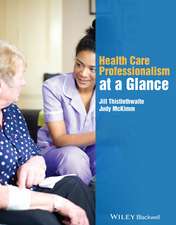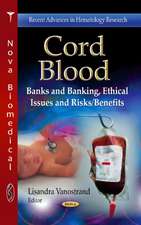Recovering the Nation's Body: Cultural Memory, Medicine, and the Politics of Redemption
Autor Linda F. Hogleen Limba Engleză Paperback – sep 1999
The body is both a site for medical practice and a source of therapeutic and scientific tools. As such, there are a variety of meanings ascribed to the body which both affect and are affected by cultural, economic, political and legal complexities. In order to access and use body parts, Linda F. Hogle states, transformative scientific and cultural processes are brought into play. Nowhere is this more evident than present-day Germany, where the spectre of Nazi medical experimentation still plays a large role in national policies governing the use of body parts and the way these policies are put into practice. In their efforts to be perceived as not repeating atrocities of the past, German medical practitioners and policy-makers reformulate ideas of bodily violation. To further confuse the issue, the reunification of East and West Germany has engendered new questions about the relationship between individuals’ bodies, science, and the state.
Hogle shows how “universal” medicine is reinterpreted through the lens of national and transnational politics and history, using comparative examples from her research in the United. States. Recovering the Nation’s Body is the first book to analyze the actual practices involved in procuring human tissue, and the first to examine how the German past and the unique present-day situation within the European Union are key in understanding the form that medical practices take within various contexts.
Hogle shows how “universal” medicine is reinterpreted through the lens of national and transnational politics and history, using comparative examples from her research in the United. States. Recovering the Nation’s Body is the first book to analyze the actual practices involved in procuring human tissue, and the first to examine how the German past and the unique present-day situation within the European Union are key in understanding the form that medical practices take within various contexts.
Preț: 274.58 lei
Nou
Puncte Express: 412
Preț estimativ în valută:
52.54€ • 54.97$ • 43.65£
52.54€ • 54.97$ • 43.65£
Carte tipărită la comandă
Livrare economică 02-16 aprilie
Preluare comenzi: 021 569.72.76
Specificații
ISBN-13: 9780813526454
ISBN-10: 0813526450
Pagini: 262
Dimensiuni: 152 x 229 x 20 mm
Greutate: 0.37 kg
Ediția:None
Editura: Rutgers University Press
Colecția Rutgers University Press
ISBN-10: 0813526450
Pagini: 262
Dimensiuni: 152 x 229 x 20 mm
Greutate: 0.37 kg
Ediția:None
Editura: Rutgers University Press
Colecția Rutgers University Press
Notă biografică
Linda F. Hogle is a fellow at the Stanford University Center for Biomedical Ethics. She has written widely on the anthropology of science and on bioethics and cultural diversity.
Cuprins
Introduction : situating medical practices
Animation and regeneration : the meaning of death and the use of body materials in history
Embodying national identity : national socialism and the body
Culture, technology, and the law define the body
Bodies, sciences, and the state in the new Germany
Organizing the procurement and use of human materials
Local practice : coordinators and surgeons
Converting human materials into therapeutic tools
The right therapeutic tools
Conclusions : medicine and the politics of redemption
Animation and regeneration : the meaning of death and the use of body materials in history
Embodying national identity : national socialism and the body
Culture, technology, and the law define the body
Bodies, sciences, and the state in the new Germany
Organizing the procurement and use of human materials
Local practice : coordinators and surgeons
Converting human materials into therapeutic tools
The right therapeutic tools
Conclusions : medicine and the politics of redemption
Recenzii
A noteworthy contribution to our understanding of the cultural history of twentieth-century Germany.
This astonishing portrait of changing understandings of life and death is both profound and revolutionary. While extending classical debates about body parts as gifts and as commodities, it brilliantly transfigures them. Unparalleled in its field, this powerful book redefines the future of medical anthropology.
Descriere
Recovering the Nation’s Body is the first book to analyze the actual practices involved in procuring human tissue, and the first to examine how the German past and the unique present-day situation within the European Union are key in understanding the form that medical practices take within various contexts.
